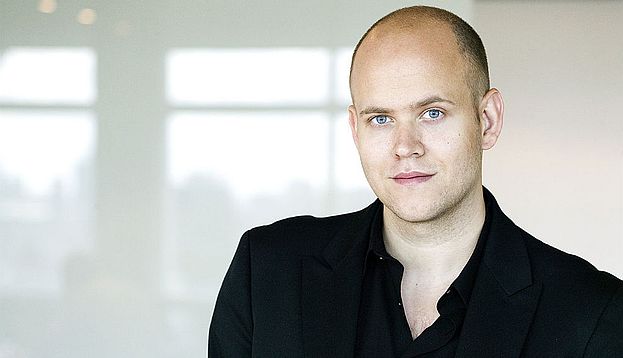Although not everyone is crazy about the streaming Spotify service – Taylor Swift’s public departure from it is certainly hard to ignore – CEO Daniel Ek couldn’t help but explain that it isn’t about profiting from piracy, but paying for good services for the site.
Ek recently posted on the Spotify blog page, explaining that the company has given $2 billion to artists since its debut on the scene back in 2008. In fact, in the last year alone, half of that – $1 billion – was given to artists.
Currently, the ratio for paying artists for their work on the site averages out around 70 percent of overall revenue, according to Adweek. Considering that the company’s sales were $1.43 billion over the last year, that’s quite a bit of change.
The global music marketplace has managed to build $15 billion in business overall, according to the International Federation of the Phonographic Industry, which is a drop from the previous year’s $16.5 billion. Regardless, it’s still big business, and Spotify plays a huge part, as Ek has claimed that the company has paid $1 for every $15 spent in that department in the last year – estimating to nearly seven percent of all global music sales.
Streaming music services also calculated to 39 percent of the industry overall, or an estimated $5.9 billion, according to the IFPI. Paired with Ek’s statements in the blog, this estimated a 17 percent share of the overall digital streaming market.
Said Ek on the blog, “We’re trying to build a new music economy that works for artists in a way the music industry never has before. And it is working – Spotify is the single biggest driver of growth in the music industry, the number one source of increasing revenue, and the first or second biggest source of overall music revenue in many places. Those are facts. But there are at least three big misconceptions out there about how we work, how much we pay, and what we mean for the future of music and the artists who create it.”
Meanwhile, as far as Swift goes, Ek shows no hard feelings, and even praised the female singer for her album sales for 1989, which cleared 1.2 million copies in the first week. “We hope she sells a lot more because she’s an exceptional artist producing great music,” he explained. “In the old days, multiple artists sold multiple millions every year. That just doesn’t happen any more; people’s listening habits have changed – and they’re not going to change back. You can’t look at Spotify in isolation – even though Taylor can pull her music off Spotify (where we license and pay for every song we’ve ever played), her songs are all over services and sites like YouTube and Soundcloud, where people can listen all they want for free.”
Now to see where the digital streaming music scene goes from here . . . and if Ms. Swift will join any of them for the ride.

